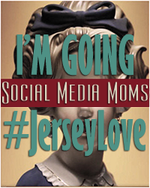In Defense of PR: View from A Blogger / PR Practitioner
 Wednesday, October 3, 2012 at 10:16AM
Wednesday, October 3, 2012 at 10:16AM When I was 24 I got my first real PR agency job. The agency was one of the hottest and fastest growing in the San Diego tech sector. We had red walls, a fully stocked refrigerator and "team-building outings." The CEO had her slew of 20-something girls in little business suits, lined up in their cubes pitching, writing and trying to figure out what the hell a 802.11 repeater was.
Let me tell you a little about Public Relations... see, there has always been a misunderstanding of what it really means.
Public Relations is the forward facing communicator for a company, brand or product. This department writes the news of the company and spins it to make it a good story for public consumption. PR professionals are paid to get news to journalists in such a way that a journalist wants to write about it.
But the reality is that for every piece of news, you are lucky if you get one - five publications to cover it. So you constantly build your list of contacts through journalists who write similar stories, cover your client's competitors or look to understand the space you are in. And part of an overall plan is keeping journalists informed on news information and story ideas by "blasting" pitches to lists. Are the lists perfect? Never. Does a PR person try their hardest to keep the lists as clean and relevant as possible? They should.
A common complaint I hear is that the pitch isn't personalized enough. PR people use massive data bases - Cision and Vocus to name a few - to form their lists. These databases have very, very basic information listed about journalists and, more recently, bloggers. Mainly keywords and a snippet from your bio. When a PR person searches through the system to build lists, they will search for general phrases. A shampoo company may search for things like "beauty products" and "reviews" - so if your niche is organic-only products, your name may slip through the cracks and your name added to the list. Why? Because the bio on the database may make you look like the IDEAL CUSTOMER for this shampoo and there is a chance - maybe only a slight one - that you will want to write about their story/brand/product.
And journalists write these articles at no cost to the company/brand/product.
Yes. Journalists write for FREE.
Well, kinda. See, it's the job of the journalist to fill the publication they write for with valuable news and information to get people to buy and subscribe to their publication. In the PR world if you want to pay for content, that's an advertorial, or a straight up ad. Technically, it's considered unethical for traditional journalists to even get gifted with products and services.
Here is where PR people and bloggers don't see eye-to-eye.
Bloggers see it as "I have this amazing platform that I've worked my ass off to get to the point it's at, why would I talk about your product, post pictures of your brand and include links to your sites for free?" To a blogger, it's like Revlon asking Vogue to run it's ads for free.
But honestly, in traditional PR, the company would never think of paying for journalistic coverage at publications like Wall St. Journal or Allure. And there is the tipping point.
So what is a blogger and a PR person to do?
First, we need to keep in mind that both of us are humans, prone to mistakes. How would a blogger feel if a PR person blasted them across social media, or sent an email to 300 PR reps about the professionalism of the blogger? Another thing bloggers need to keep in mind is that today's PR associate is tomorrow's Marketing Manager with a $500,000 blogger relations budget.
Additionally, as the blogosphere is growing and as we bloggers are trying hard to make a dime, many of us will become the brand/product/company. And we all know who the bloggers are we would want to work with... if you are negative and bitching, would you want to work with you based on what you've said on various platforms?
The thing we all need to keep in mind is that daily, our scope is is changing and morphing into something it wasn't yesterday. We all need to figure it out together, to get us all to the point where we think we should be.
But this change isn't going to happen overnight. So we all, Bloggers and PR reps, need to work together until that day comes. And I have a few suggestions for bloggers to ease the frustration.
1) Check and see if you are listed in PR databases. If so, contact them with the information you want noted. If you don't like getting press releases - you can put that in your bio. Make sure the databases have the information YOU want noted.
2) Have a full disclosure sheet and few sentence information about how you work with brands easily found on your website. Figure out for yourself what you will do on a straight publicity front, and what you charge for.
3) NEVER ask for money to review products. Both the integrity of the brand and the blogger are hurt by paid reviews. Obviously you need product to even write a review, but be up-front with the PR person that just because product is sent, they are not guaranteed a review or mention.
4) Be professional. Don't take on everything. It's OK to just delete emails that are not right for you. It's ok to email back and asked to be taken off a list for a brand you don't gel with and most of all - it's ok to just say "No Thanks!"
While I don't want the comments to turn into a bitch session on either side - I would love thoughts from bloggers and PR peeps on this! Did I miss anything? Have you had a great experience you want to share?
 PR,
PR,  Public Relations,
Public Relations,  bloggers in
bloggers in  PR thoughts
PR thoughts 




